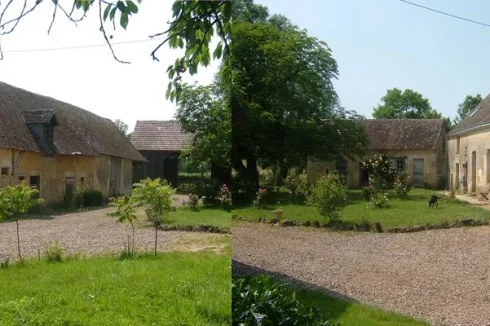Increase in Social Charges and VAT
Wednesday 01 February 2012
Social charges are to rise by 2 percentage points, affecting capital gains and investment income, while the rate of VAT is to rise by 1.6 points.
The changes mean that the standard, full rate of VAT (TVA) will increase from 19.6% to 21.2%, while the rate of social charges on investment income and capital will increase from 13.5% to 15.5%.
Almost all forms of capital and investments are affected by the increase in social charges, including rents, savings interest, dividends and assurance vie. Only the regulated bank savings accounts - Livret A, Livret jeune, Livret Développement Durable - escape it.
It also means the total rate of capital gains tax on property sales for those resident in France rises to 34.5% (19% + 15.5%). It is higher on certain other types of investment.
This is the fifth increase in 6 years in the social charges, when it has risen from 10.3% in 2005, to 13.5% in October 2011 and now 15.5%. Four of the increases have been under President Sarkozy.
The VAT increase is in line with increases that have occurred elsewhere in Europe, but at 21.2% France will be slightly above the European average, which is 21%.
The small chinks of relief in the announcement made by President Sarkozy on Sunday are that the 8% rate of social charges on pensions and salaries remains the same, as does the reduced (but recently increased) rate of vat of 7% on building renovation works and certain other products and services.
In addition, the changes are to be effective from 1st October 2012 (although it could well be earlier), well after the presidential elections in April and May, when Nicholas Sarkozy may no longer be the incumbent President.
François Hollande, the socialist presidential candidate has already stated he will not implement either increase if he was elected. Regular readers will also be aware he has also promised a reform of the social charges.
Competitivity
The changes are the cornerstone of an attempt by the government to reduce employer costs in order to improve workplace competitivity in France.
To this end the changes will finance the abolition of a 5.4% social security contribution charge for family benefits on the wages of employees, which is paid by employers.
It will cut employer social security contributions by €13 billion, with €11 billion of it coming from the increase in VAT and €2 billion from social charges.
Not all wages will be affected by the change; only those up to 2.4 times the level of the minimum wage, while those below a certain level already get relief from the charge.
The socialists have denounced the proposals as inequitable, while economists have come to the not unsurprising conclusion that they fall well short of dealing with the problem of the lack of competitivity in the French economy.
It is also noteworthy that the government continues to ignore the income tax system as the principal fiscal tool at its disposal.
Over the past 5 years an array of new taxes have been introduced, while income tax has retained a hallowed status.
As a result, there is growing concern in France that the system of taxation is becoming impenetrably complex and inequitable.
Flexible Work Contracts
President Sarkozy is also seeking to introduce greater ‘flexibility’ into workplace arrangements, by granting employers the right to impose a reduction in salaries or an increase in hours for a specific, limited period.
These new contrat compétitivité-emploi are a thinly veiled attempt to finally end the 35 week, which the government has been nibbling away at since President Sarkozy came to power in 2007.
The President recently decribed the 35 hour a week as a 'catastrophe'.
In future, if within two months of the start of negotiations employers and employees cannot reach agreement, then the President has said that Parliament will act.
Given the industrial strife that has occurred in several key industrial plants over the 35 hour week, it is unlikely many employers will wish to take up the offer to have Parliament try and settle their industrial relations problems for them.
Other Measures
In addition of these changes the President also announced:
- A tax of 0.1% on financial transactions, applicable from August;
- The creation of a bank for industry with funding of €1 billion;
- An increase in apprentice quotas for larger companies
President Sarkozy has also announced that the government is to allow a 30% increase in the density levels for residential construction, although it is subject to an opt-out provision for local authorities. The objectives are to increase the number of dwellings for sale and reduce house prices. The concession is to be granted for three years. We may well come back to this issue in a later Newsletter as there are currently few details available.
Thank you for showing an interest in our News section.
Our News section is no longer being published although our catalogue of articles remains in place.
If you found our News useful, please have a look at France Insider, our subscription based News service with in-depth analysis, or our authoritative Guides to France.
If you require advice and assistance with the purchase of French property and moving to France, then take a look at the France Insider Property Clinic.





